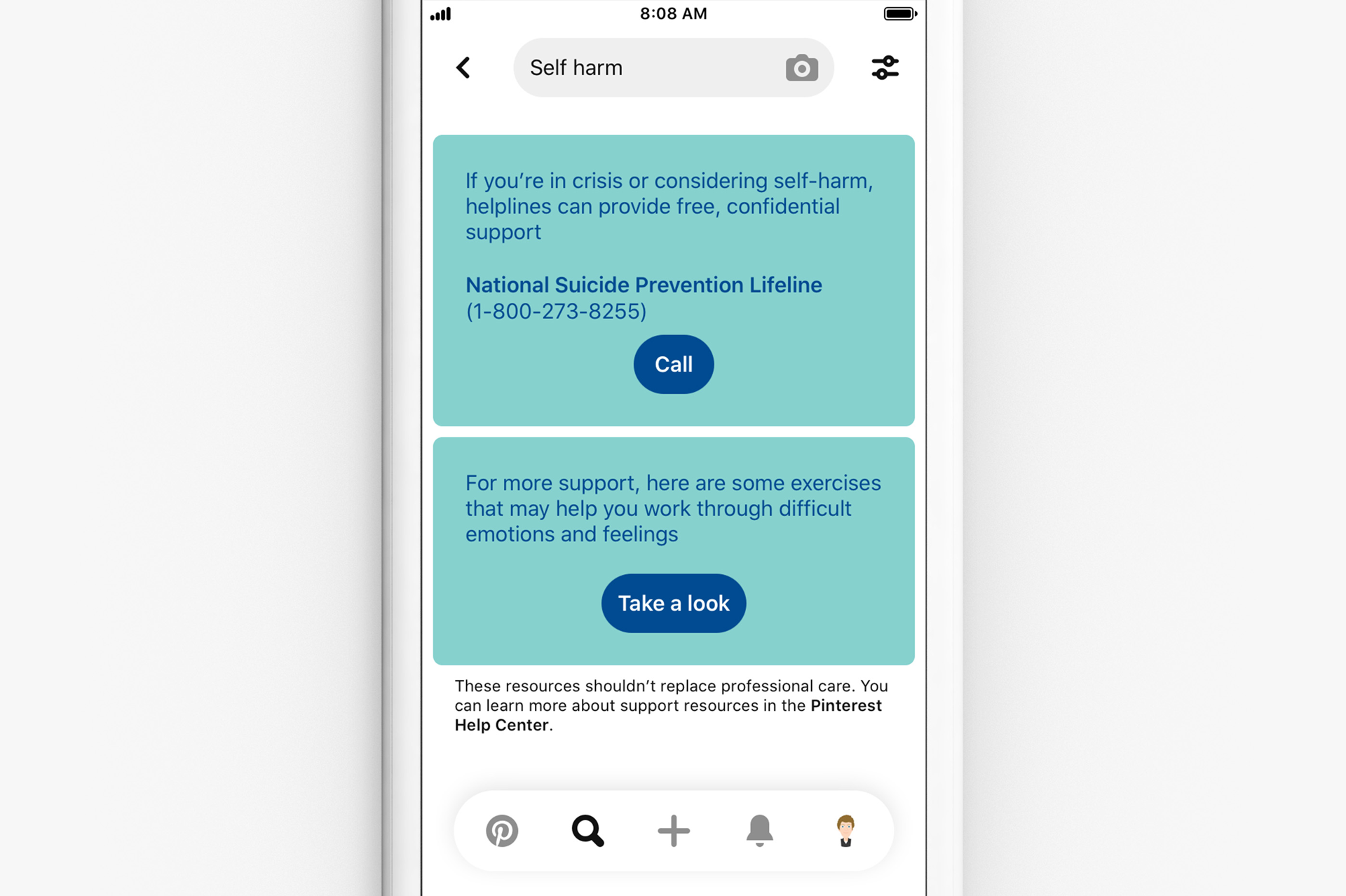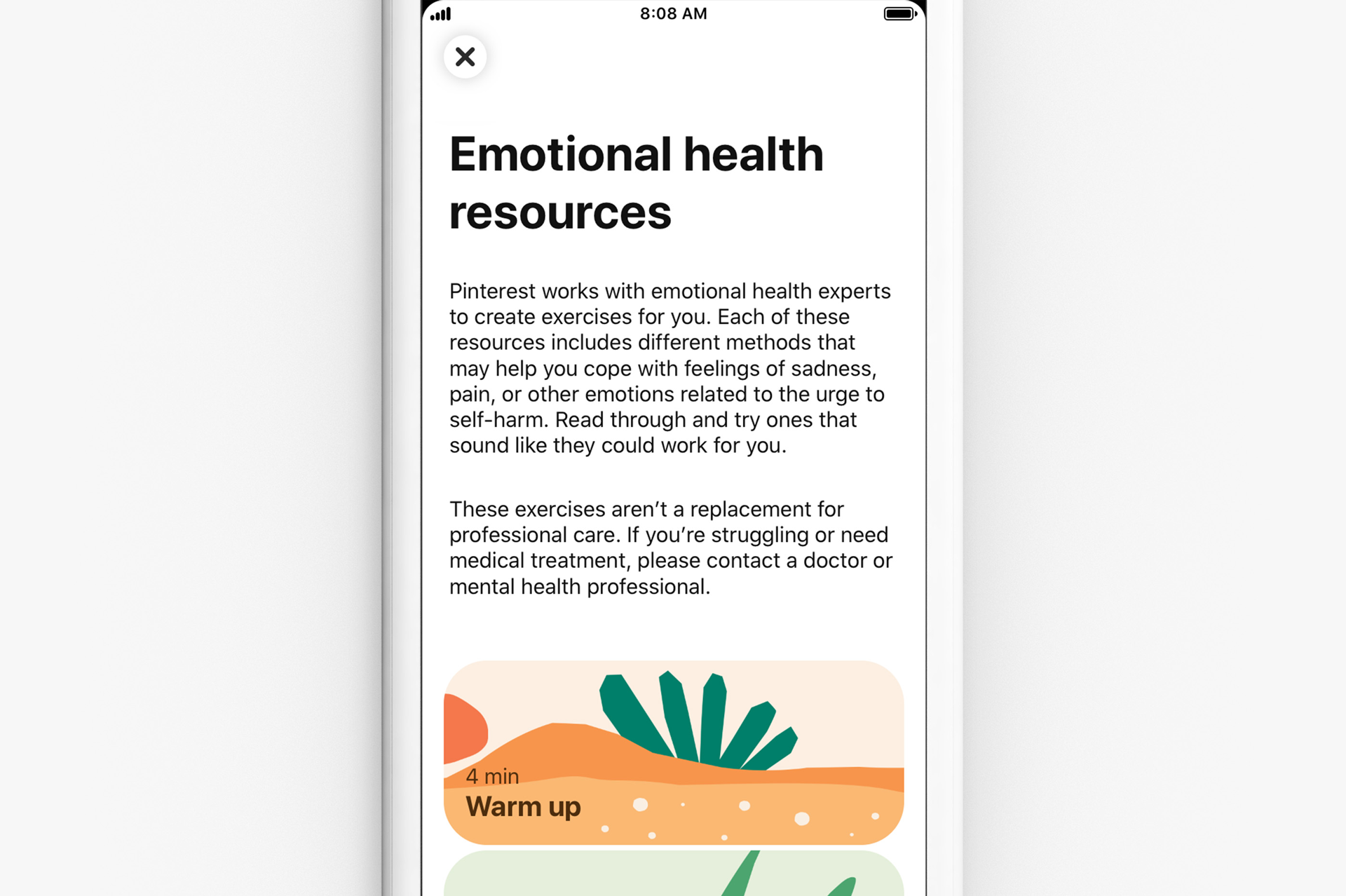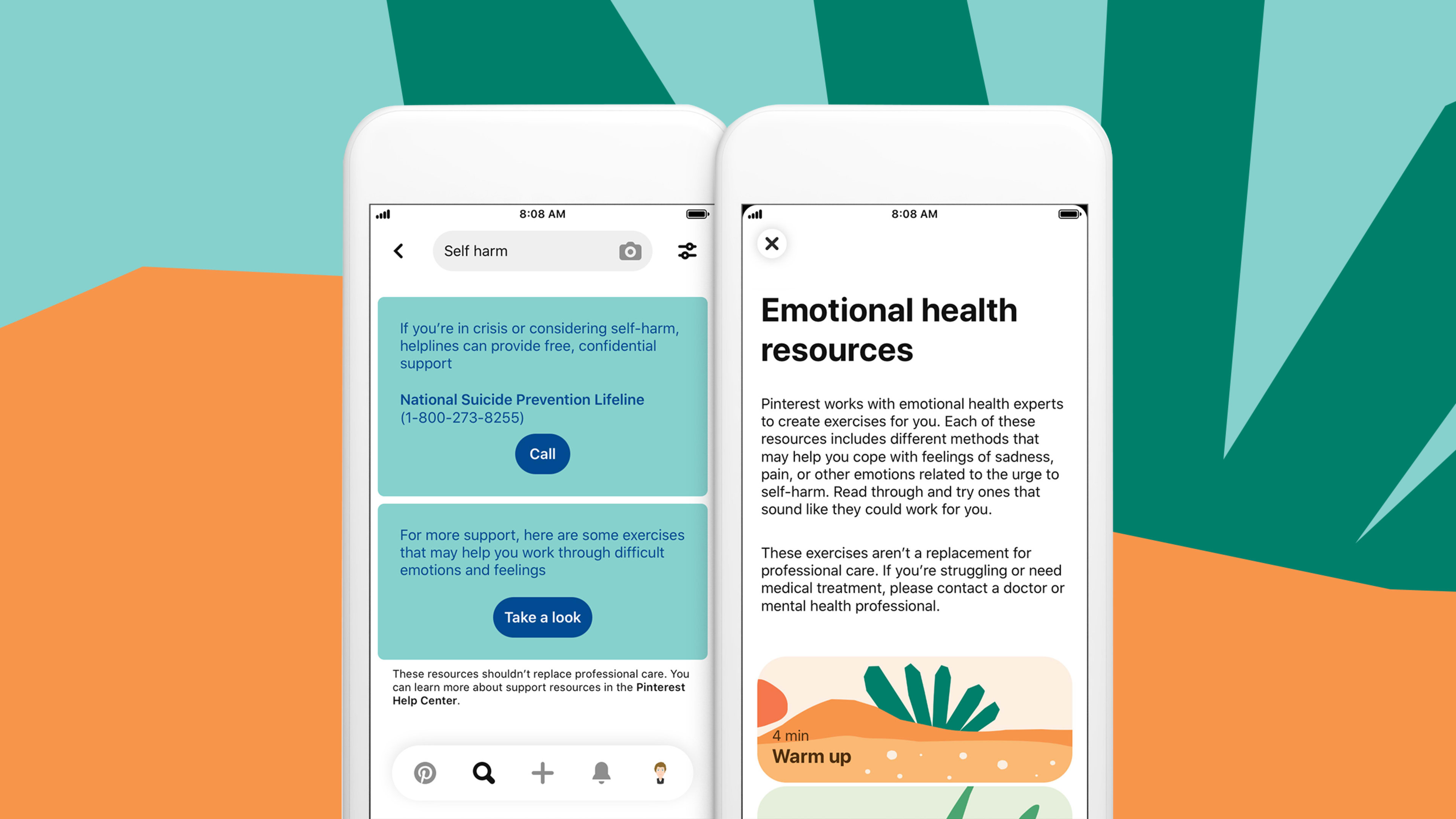Twitter still can’t get its ongoing harassment problems under control. Facebook refuses to take a stand on protecting what’s true. But Pinterest continues to make doing the obvious, right thing look easy.
Pinterest’s newest feature, launched this week, spots search queries that involve self-harm. And instead of then showing something that might validate a user’s impulse to hurt themselves, or just showing nothing at all, the company offers users 10 exercises to cope with feelings and release dangerous tension. (Previously, Pinterest offered external links to resources such as the National Suicide Prevention Hotline. Now, such resources are integrated directly into Pinterest.)

The exercises aren’t complex, and neither is the tool. There are no fancy AI algorithms at work, and the presentation looks more like a digital brochure than anything else. The entire intervention is really just a nicely formatted list of things you can do when facing stress—such as drawing, or writing down your feelings and then ripping up the pages—instead of hurting yourself.
[Image: courtesy Pinterest]
But this isn’t an exercise in technical capability. This is Pinterest’s earnest attempt to help vulnerable people who are on their platform. The activities Pinterest offers are evidence-based and were developed by working alongside mental health experts including Stanford’s “Brainstorm” lab and the nonprofit Vibrant Emotional Health.

Maybe you use Pinterest. Maybe you don’t. But the small steps the company is taking to recognize the well-being of its users are vital in a time when the connected world is synonymous with an unhealthy one. Put differently, companies such as Google will soon know if you have cancer before you do (if they don’t already!). Now, whether our great technology platforms use this information to save us, or use it to monetize us, or use it to simply ignore us, well, that’s one of the great ethical questions of our age. But as Pinterest is demonstrating, offering help to people who clearly need it doesn’t have to be a difficult task at all. It just takes some human decency.
Recognize your brand’s excellence by applying to this year’s Brands That Matter Awards before the early-rate deadline, May 3.
